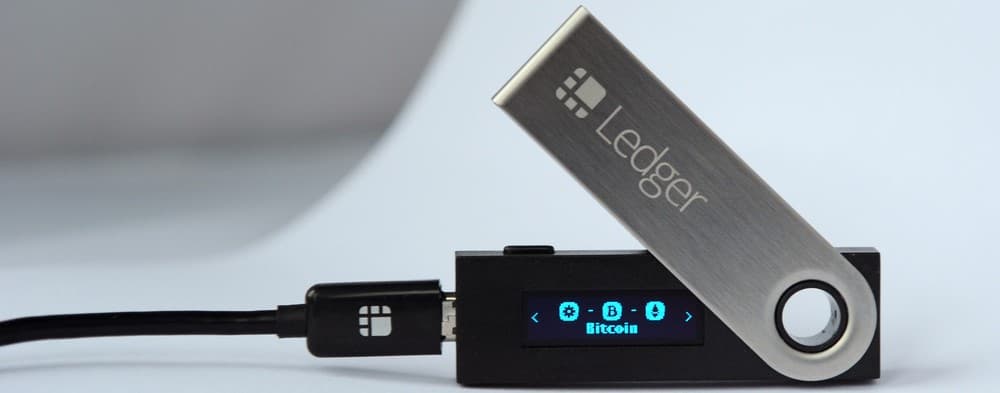Which bitcoin wallet to choose: 3 best options
Let’s look at the three most popular exchange platforms with built-in Bitcoin wallets. Capital.com, Avatrade and Quantum AI will be described in the review. These platforms have extensive functionality and provide a high level of transaction security. Traders working at these exchanges, positively evaluate the work of the mentioned online platforms. Relevant reviews can be easily found online.
Capital
The platform user can trade derivatives (CFD) with cryptocurrencies as the underlying asset (Bitcoin, Litecoin, Ripple and Ethereum). Traders have access to a leverage of 1:2. The user can place pending stock orders such as stop-loss and take-profit.
For transactions, it is required to create an account. A trader needs to enter his personal information and verify his identity. Demo account and thematic webinars are available for new traders. After mastering the basics of exchange trading, the user can replenish the deposit with real money. More than 240 cryptocurrencies are available to the trader. The minimum deposit amount is $20. The trading account serves as a cryptocurrency web wallet.
With the help of the software terminal Capital, the investor can get information about the quotes and the set spread in real time. A wide range of technical indicators that can be used to make trading decisions is available to the user. The trader can make a profit not only by conducting operations with financial instruments, but also by attracting new clients. Referral bonuses are transferred to users who have become participants of the corresponding program.
An exchange participant can buy Bitcoin via CFD using a mobile app or web interface. The account holder’s personal information is protected using modern cryptographic systems. Client funds are deposited into segregated accounts with reliable banks.
Avatrade
The platform allows trading cryptocurrency assets paired with fiat money. Trader can place pending and limited exchange orders in order to limit financial risk. Cryptocurrencies are traded around the clock.
Commissions are not charged on transactions and bank transfers. The broker’s income is pledged in the floating spread. Traders can trade digital coins using leverage (1:25). 24-hour technical support with specialists speaking 14 languages is available to users. Clients who deposit the account for the amount from 1000 US dollars can use the services of a personal manager.
The trader can make transactions with crypto assets after the funds are credited to the trading account, which is a kind of exchange wallet. The user is provided with a wide range of tools to automate trading.
Buying and selling cryptocurrencies is done using MetaTrader 4 and AvaTrade applications. Training webinars and video lessons are provided for novice investors. Beginners have an opportunity to read articles, books and analytical materials, which will help to form their own trading strategy.
Quantum AI
Traders registered in the system can take advantage of artificial intelligence technology. The efficiency of the trading strategies generated by the application is about 91%. To start working, it is necessary to go through the registration process and transfer 220 euros to the trading account, which allows working with bitcoin and other digital coins. When creating an account, you need to specify your full name, email address and phone number. The entire registration process takes 5-7 minutes.
The trading terminal has a simple interface and a large number of settings. The user can make transactions with a wide range of cryptocurrency pairs. The program has built-in tools for technical analysis and charting.
The functionality of the account is similar to that of an exchange web wallet. The system does not charge any commission for transactions with cryptocurrencies. The trader is provided with leverage, which can be used to multiply the profit from transactions with digital money. Users have several ways to withdraw funds (bank card, e-wallet, etc.). Profit is withdrawn without delays.
Other crypto wallets

Exodus software as well as Ledger Nano and Trezor hardware can be used as alternative digital stores. Exodus software is a multi-currency wallet that supports more than 70 crypto assets. Traders can download the mobile and desktop version of the application for free. Exodus program has an intuitive interface.
Bitcoin wallet Ledger Nano is a “cold” storage for cryptocurrency assets. The device is equipped with a chip that contains public and private keys. The wallet can store Bitcoin, Ripple, Litecoin and other cryptocurrencies.
The Trezor hardware vault, developed by Satoshi Lab, is designed for transactions with more than 600 cryptocurrencies. The device has a built-in Cortex M3 microcontroller that provides additional protection for funds.
Types of Bitcoin wallets
All cryptocurrency wallets are conventionally divided into “hot” and “cold”. Programs of the first type have a connection to the Internet, while programs of the second type do not. “Hot” wallets are quick to set up and require no additional hardware. “Cold” wallets are the safest way to store cryptocurrencies. This type of storage is suitable for traders who invest in electronic coins on a long-term basis.
There are the following varieties of digital asset storage software:
Exchange wallets
The software provides access to blockchain without the need to download and install applications on your computer. The web wallet is accessed by entering a personal password. Web wallets are often integrated with the software of cryptocurrency exchanges. Multifactor authentication, multi-signatures, anti-phishing codes, and other methods are used to protect private keys.
Online wallets
The application is hosted on a virtual or real server. No software installation is required in computer memory, and often such wallets use a QR code for authentication.
Desktop applications
To access the blockchain, specialized software must be installed in your computer’s memory. The key information is in the wallet.dat file, which must be password protected. Before installing the desktop application you need to check your computer with an antivirus program. After installing the software, you should make a backup copy of the wallet.dat file.
Hardware wallets
Wallets are small physical media with embedded software. Public and private keys are randomly generated. Hardware wallets are considered the most secure option for storing digital coins. The disadvantages of such storage facilities include high price and complicated access to purchased cryptocurrencies. Hardware keys software needs to be updated regularly. Appropriate files can be downloaded from the manufacturer’s website.
Mobile vaults
The smartphone application has the same functionality as the desktop software. Mobile wallet allows you to transfer digital coins using QR codes.
Paper Wallet
This type of storage is a piece of paper on which is printed the public and private key (in the form of QR codes). A paper wallet doesn’t allow partial transfer of the funds which are on the balance. After the transaction, the paper wallet will be empty.
Each type of vault has its own advantages and disadvantages. “Hot” wallets are suitable for traders who engage in intraday trading. “Cold” vaults are for long-term investors who have invested heavily in cryptocurrency.
When using any type of wallets, you need to take precautions and back up your key file. You should also use firewalls and anti-Trojan software. Don’t forget to update your antivirus application database regularly. In this case, you will reduce the risk of losing money and complicate the life of hackers who specialize in hacking cryptocurrencies.
Technical features of crypto wallets

Many novice traders believe that bitcoins are stored directly in digital wallets. From a technical point of view, this view is not entirely correct. Physically, digital currency is stored in a centralized database called a blockchain. A wallet is an application that allows access to digital coins. The application can integrate into an exchange, software or hardware environment. Bitcoin wallet allows the user to interact with the blockchain and exchange BTC with other counterparties.
The transaction requires a public and private key consisting of a set of characters and letters. The public address is placed in the public domain and can be used to transfer funds. The private key is a hexadecimal number consisting of 32 bytes. It is generated randomly.
The private key is required to sign a transaction. The owner of a cryptocurrency wallet must ensure the confidentiality of the non-public code. If a third party gains access to the private key, they will be able to make transactions without the user’s knowledge. All cryptocurrency resides in a distributed registry. Digital coins simply pass from one user to another.
Cryptocurrency can be accessed with more than just a private key. Transactions are made using a so-called Seed-phrase, which consists of random words (up to 24 pieces). The set of terms is generated by a computer algorithm in the process of setting up the crypto wallet. Seed-phrase must not be accessed by third parties. You can store bitcoins and altcoins in crypto wallets. The list of cryptocurrencies available depends on the specific type of electronic storage. With the help of crypto wallet, a trader can find out the status of his balance at any time.
Conclusion
A newcomer to the cryptocurrency market should definitely understand how to store digital assets. Failure to understand the principles of specialized software can lead to partial or complete loss of funds. A reliable cryptocurrency wallet is a guarantee of safety of your investments.
Electronic storages with a wide range of functions will give traders new opportunities for capital growth. The cryptocurrency market is currently in a phase of active development. In the long term, the value of digital assets can grow by tens or even hundreds of times.


